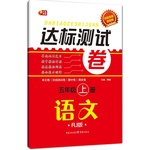题目内容
根据下面短文内容,在短文的空格处填上一个恰当的词,使短文完整、通顺。
I dreamed of going to the USA when I was a middle school student. When I was in high school, I made up my 【小题1】 to go to America.
I wanted to study English and American culture. And I didn’t want to study in college in Japan at all. In Japan, it is very 【小题2】 to enter a famous college or university but easy to graduate, so students don’t study hard after they enter the college or university. This was one of the reasons why I came to America.
I came to America last September. I have been here for eight months. When I first came here, I was very surprised. There are many differences 【小题3】 Japan and America. I felt it was very strange and interesting.
I was also very upset because I heard English 【小题4】 . Whenever I watched TV, went shopping, or even 【小题5】 a walk, I heard only English. Everything was very hard for me because I could hardly understand English. Now I am used to hearing English and I can talk with Americans more easily, 【小题6】 things are getting better.
After I came here, I realized how much I love my family, how difficult it is to live by 【小题7】 , how exciting it is to live in another country, and how important it is to do 【小题8】 I want to do. If I didn’t come here, maybe I didn’t realize these things. This is the most important experience in my life. I’m going to stay here for about three years. I’ll never forget the life in the USA.
【小题1】mind
【小题2】difficult/hard
【小题3】between
【小题4】everywhere
【小题5】took/had
【小题6】so
【小题7】myself
【小题8】what
解析试题分析:
【小题1】考查固定短语make one’s mind to do 下定决心做某事。
【小题2】结合下文but easy to graduate,可知日本大学是难进易出,联系谓语动词is,可知填形容词difficult或者hard。
【小题3】结合句意可知考查介词between,这个词常和and一起构成固定短语,在……和……之间。
【小题4】根据Whenever I watched TV, went shopping, or even 82 a walk,及下文描述,可知本句意思为我也很心烦,因为到处听到的都是英语。故填everywhere。
【小题5】联系下文a walk可知前面缺少谓语动词,故填take,从事或者have从事的过去时态。
【小题6】本句不缺少句子成分,联系上下文可知前后两句为因果关系,故填连词so。
【小题7】考查短语by oneself。结合上文此时作者是一个人独自生活,句子主语为I,故填by myself。
【小题8】通过分析可知宾语从句缺少逻辑宾语,故填what,我想做的事。
考点:记述文中的词汇应用能力
点评:本文记述了一位日本留学生在美国的留学生活。短文讲述了他为什么来美国留学的原因,在美国的生活有不适应到逐渐习惯的过程,短文最好作者描写了自己来美国这段时间的一些收获。本文描写心理活动较多,阅读中注意体会。本题较难,答题时先根据上下文推出句意然后猜出所需单词,在确定单词适当形式完成句子。有些答案不唯一,注意分析比较,选出最佳答案。

 星级口算天天练系列答案
星级口算天天练系列答案 芒果教辅达标测试卷系列答案
芒果教辅达标测试卷系列答案A)根据下面短文内容,在文章后小题的空格里填入适当的词语,
注意:每空一词。
Different cultures make different families. For example, there are differences in the way Chinese and Americans raise children.
First, Chinese and American families have different attitudes towards independence (独立). Each Chinese child has been considered to be the apple of parents’ eyes. It is not surprising to see Chinese parents always helping their children with getting dressed, having meals, bathing, and other things. American parents, on the other hand, teach their children how to do things alone from childhood.
Second, most Chinese parents often make their children have extra classes, such as piano, drawing, or singing lessons. Parents want their children to develop in an all-round way and be better students than other children. The problem is that their children may not be interested in these classes. American parents try to respect (尊重) their children’s interests and usually don’t make them do what they don’t like.
Third, there is a difference in the way parents in China and American treat mistakes that children make. Many Chinese people believe in the saying, “Spare the rod, spoil the child (不打不成器).” When Chinese parents see their children make mistakes, they often get very angry, some even hit them instead of making them realize their mistakes. This affects the children’s growth and the forming of their character, and also makes the generations gap (代沟) wide. American parents think it is common for people to make mistakes because mistakes are a part of life. They often say, “It’s OK to make mistakes. Making mistakes helps you learn.” They help their children deal with mistakes by giving them ideas about how to turn mistakes into learning opportunities (机会).
Families in China and America are quite different, and one way may seem better than the other, but it is better to think about whether the parents fit the family or not instead of talking about which one is wrong or right.
|
Comparisons |
Differences |
|
Different attitudes towards independence |
Chinese parents always try to do almost 1 for their children. |
|
American parents try to let their children 2 with things on their own from childhood. |
|
|
Different ways of treating children’s 3 . |
Chinese children are often made to go to 4 classes. |
|
American children are usually encouraged to do what they 5 . |
|
|
Different ways of treating children’s mistakes |
Chinese parents are 6 about children’s mistakes and often 7 them. |
|
American parents think everyone can make mistakes and they are a good 8 to learn. |
|
|
The author’s 9 |
|
|
Parenting styles should depend on what is 10 for the family. |
 Our eyes are very important to us. They are like cameras. We can see beautiful things and colors around us.
Our eyes are very important to us. They are like cameras. We can see beautiful things and colors around us.